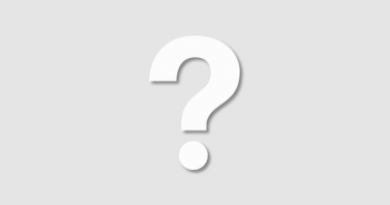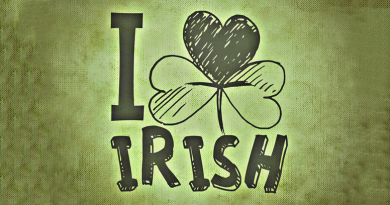We live in a world of opposites. Good versus evil; fat versus thin; indie versus commerical; Arsenal versus Spurs. It's a polarised world: either you're with us or you're against us. There are no inbetweens and no flexibility. You have to be one or the other.
You might think that this is an artefact of the modern, digital, binary world. You'd be wrong, though. Look at the English Civil War: Roundheads versus Cavaliers. Look at the Crusades: Christian barbarians versus infidel civilisation. Go back as far into history as you like, as far back as myth and legend, even, and there's always a popular image of us-versus-them. Some people have even used this to argue that brains are themselves wired in binary; but that might be going a bit too far. It's pretty clear, though, that polarisation is natural.
At the moment, nothing is quite as polarised as politics. Well, I say "at the moment"; it's probably always been that way. At least there are currently a few countries where you won't get killed just because you think the Dear Leader gets things wrong occasionally. You might have politicians swarming to denounce, discredit and generally insult you, but you won't get killed. Probably. Unlike most places for most of human history, where a career in politics was usually a quick shortcut to an early grave, often chased there by mobs with flaming torches. Flaming torches are traditional when you're in a mob, even in summer. Don't ask me why.
As I was saying, politics is, and always has been, a game of two sides. In the ancient world, there was Athens-imperialist versus Sparta-communist, after a fashion. The French Revolution had its left- and right-wing politics - in fact, that's where the terms "left-wing" and "right-wing" originate, fact fans. In the 1930s it was fascist-against-communist, and now the USA has conservatives-versus-liberals and Britain has the right against the far right. Which means the same thing.
The term "liberal" is very confusing, incidentally, because it means very different things either side of the Atlantic. In America, people seem to think it means someone who wants to nationalise the business world, set the basic tax rate to 100% and force all parents to hand their children over to be brought up in government communes (just like the Spartans did). They then use it to describe people who express shocking beliefs like "it might actually be OK to keep taxes the same instead of dropping them" or "Jesus didn't speak English". In Britain, on the other hand, "liberal" usually means someone who has a beard, likes to drink real ale and wears socks with sandals, and who spends hours supporting a political party who never actually make it all the way. In many ways, this is a good description of my sex life.
I'd like to share, though, a radical new idea. Because the real division in politics isn't between the left and the right, or between the donkey and the elephant. It's between those who know they are right and those who are a bit doubtful.
Think about it. In every election, who are the most important voters? The party members who would put a cross against any name so long as they wear the right rosette? Of course not - everyone knows their votes are in the bag. The important voters are the floaters. The undecideds. The people who say "well, I like their tax policy but I'm not really sure that shooting all illegal immigrants on sight is a good idea." Those are the voters with power.
Think about it some more. Where do you see the poorest arguments? The flimsiest justifications for things? With people who are already sure that they're right. Being able to spot their lunatic arguments is a good skill. Our tireless researchers went out and asked these people what they thought about the illegal Israeli settlements on the West Bank. Which of these people would you trust the most when it comes to rational decision-making?
1) "Doesn't it say in the Bible that that's the Promised Land? And I quess Americans are God's people now. So those settlements are ours, dammit!"
2) "Um... well, there was the Holocaust, and the Russian pogroms, and I guess a lot of right-wing Israelis feel it should be their land. But if there are people already living there, you can't just kick them out. And there are international laws about this sort of stuff. But equally you can't just kick the settlers out if they've, like, settled. I guess there's no easy answer to it."
3) "The land must be given to the Jews! It is a vital part of the End Times, so that the Lord Jesus can return in glory, bedecked in heavenly raiment!"
I think you can see my point.
Everywhere you look, the evil people are the ones who are deadly sure they are doing the right thing. Example One: Mel Gibson, and that horrible S&M film he made about some chap who thought he was God. Mel - whose father, let's remember, is a noted antisemite who claims the Holocaust didn't happen - had a phase of going round interviews telling everyoine who would listen that his leading man had been struck by lightning. Twice. So obviously he must be doing the right thing. I might have to fill in the blanks in that argument for you. Something both dangerous and unlikely happened. But it wasn't as bad as it could have been. Therefore, it must have been an attack from Satan. And as Satan is bad, Mel (and his actor) must be good! It's a masterpiece of I-already-know-I'm-right thinking. Clearly Mel has forgotten about the Bible story where God tells Satan to go down to Earth and make someone's life a misery, because they were getting a little too full of themselves. Incidentally, the film is clear evidence that Satan doesn't exist - if he did, he'd have sued by now over his unauthorised (and entirely non-Biblical) appearance. That would be fun to see, if only to find out if he really does look like Al Pacino when in court.
Example Two: Osama bin Laden. Yes, yes, I know it looks a bit odd putting him up there next to Mel Gibson as an example of evil. But, let's face it, they both love apocalyptic movies demonstrating how the ungodly will burn. The main difference is that bin laden does it in real life; that way he can get CNN to pay for the filming. His philosophy is a bizarre mix of his favourite Koran passages filtered through Isaac Asimov novels. There's a lot of the Koran that he ignores, though. Appearing on the telly, for example, is an extremely un-Islamic thing to do, which is why you never saw any pictures of the Taleban's leaders. Clearly it's no problem for Osama. He also seems to approve of suicide; again, it's strictly against the rules he claims to follow. It seems to me that he's a prime example of someone who decides they're right first and makes up the reasoning after.
The main problem we have here is that virtually all known politicians and all known religious leaders (except the Archbishop of Canterbury) clearly fall into the Evil camp. Which isn't really a surprise, because politicians only ever seem to do it so they can tell everyone else what they think they should be doing. Except George W. Bush, who only became President because he thought it would be the best way to get into the job he's really aiming for: head of Major League Baseball. "Caitlin, help us!" I hear you cry. "However can we escape from this awful situation?"
Well, I have a solution. At least, I think I so. I'm not very sure about it. (See, you were starting to think I was evil for a minute there.) We need to start our own political party, dedicated to and for people who aren't entirely sure about everything. It'll be easy to get started, because a lot of people who are active in politics aren't that loyal to their banner, and will be happy to jump on a new bandwagon if it looks like it might be a winner. Once we've appeared, we'll hoover up all the floating voters - they're our natural constituency. And, once we start to get noticed, it'll just snowball. For one thing, people will soon realise that the natural state of politics isn't left-versus-right, it's people who think they're right against everyone else - and the only people representing the Everyone Else side will be us! (Excepting Britain, where the Liberals might be a nuisance. I suggest we distract them with pints of real ale and free Guardian subscriptions.) Secondly, as we'll actually have to think about and discuss all our decisions, it will soon become obvious that we're bound to do better than people who are always sure that everything they do is right.
All we have to do is raise up our banner in the name of vagueness and victory is inevitable. I think*. We will (probably) be proud to march under slogans such as "We don't have easy answers" and "There is no magic bullet!" We think, therefore we think we are. In ten years' time, we might be running the world! Who's with me?
Oh, come on, make your minds up.
It'll be easy to weed out people who think they know all the answers and think they can use us as an easy route to power. All we need do is ask them some awkward questions; if they know the answers straight away, or think the answer is clear and simple, they're out.
There Are No Magic Bullets
What do you think, did we get it right? Comment here...
Popular Content
WANT MORE FUNNY LIKE THIS? FOLLOW US ON FACEBOOK









